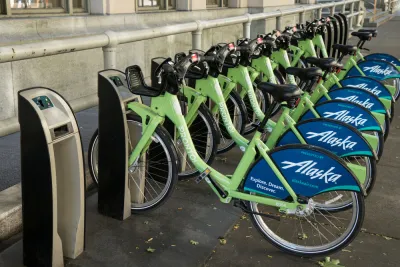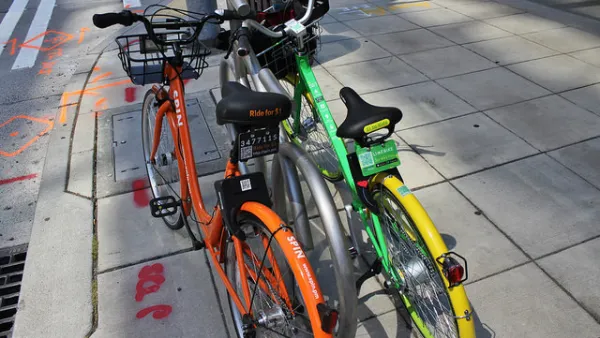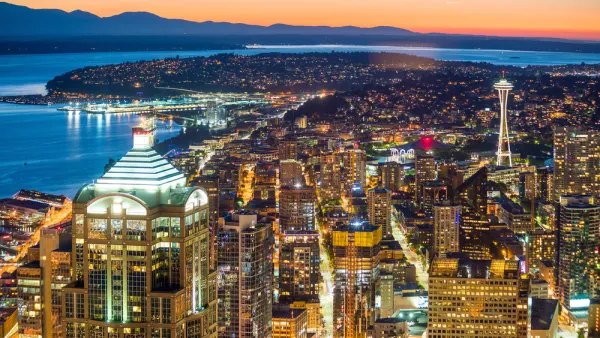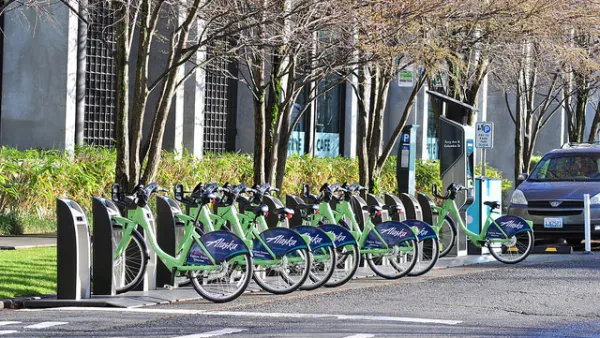Seattle's bikeshare found itself in a negative feedback loop of low ridership, lean revenue, and limited facilities.

[Updated March 1, 2017] Bikeshare programs went from novelty to ubiquitous in the last decade. Even small cities like Rapid City, South Dakota and Clarksville, Tennessee now have their own programs. But somehow Seattle, one of the country's denser, more active-transit-friendly cities, saw its bike share program die. "Pronto! isn’t the first bike share system to cease operations, but it might be the most prominent non-pilot program to shut down," Andrew Small writes for CityLab.
Small's article conducts an autopsy of the Seattle's Pronto! program and finds a number of causes of failure. One was a lack of density of stations, which made the system impractical for many who did not live or commute to places close to Pronto! stations. Another is the city's helmet laws, which made spontaneous rides less easy to achieve. There was also a lack of funding. Small argues that membership was expected to fund too much of the program. Small points to problems with the amount of government funding and the difficulty of getting corporate funding after the program failed to meet its membership goals.
[The story has been updated to correct the location of Rapid City.]
FULL STORY: The Four Horsemen of the Bike Share Apocalypse

Analysis: Cybertruck Fatality Rate Far Exceeds That of Ford Pinto
The Tesla Cybertruck was recalled seven times last year.

National Parks Layoffs Will Cause Communities to Lose Billions
Thousands of essential park workers were laid off this week, just before the busy spring break season.

Retro-silient?: America’s First “Eco-burb,” The Woodlands Turns 50
A master-planned community north of Houston offers lessons on green infrastructure and resilient design, but falls short of its founder’s lofty affordability and walkability goals.

Test News Post 1
This is a summary

Analysis: Cybertruck Fatality Rate Far Exceeds That of Ford Pinto
The Tesla Cybertruck was recalled seven times last year.

Test News Headline 46
Test for the image on the front page.
Urban Design for Planners 1: Software Tools
This six-course series explores essential urban design concepts using open source software and equips planners with the tools they need to participate fully in the urban design process.
Planning for Universal Design
Learn the tools for implementing Universal Design in planning regulations.
EMC Planning Group, Inc.
Planetizen
Planetizen
Mpact (formerly Rail~Volution)
Great Falls Development Authority, Inc.
HUDs Office of Policy Development and Research
NYU Wagner Graduate School of Public Service




























